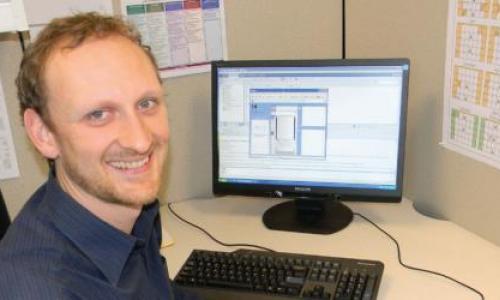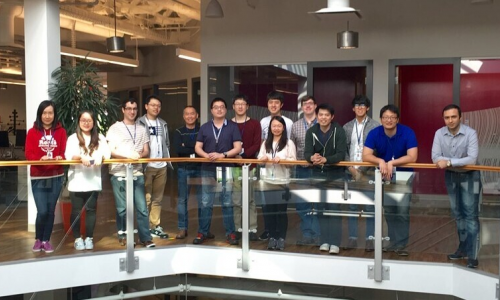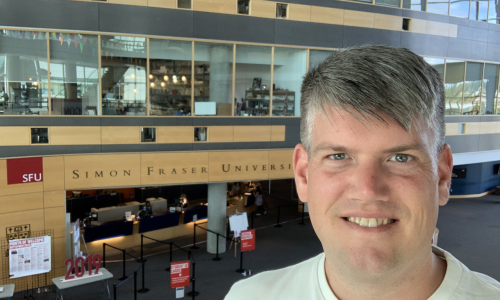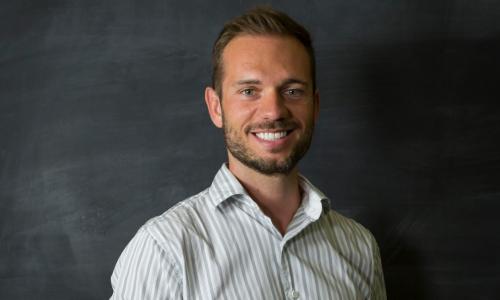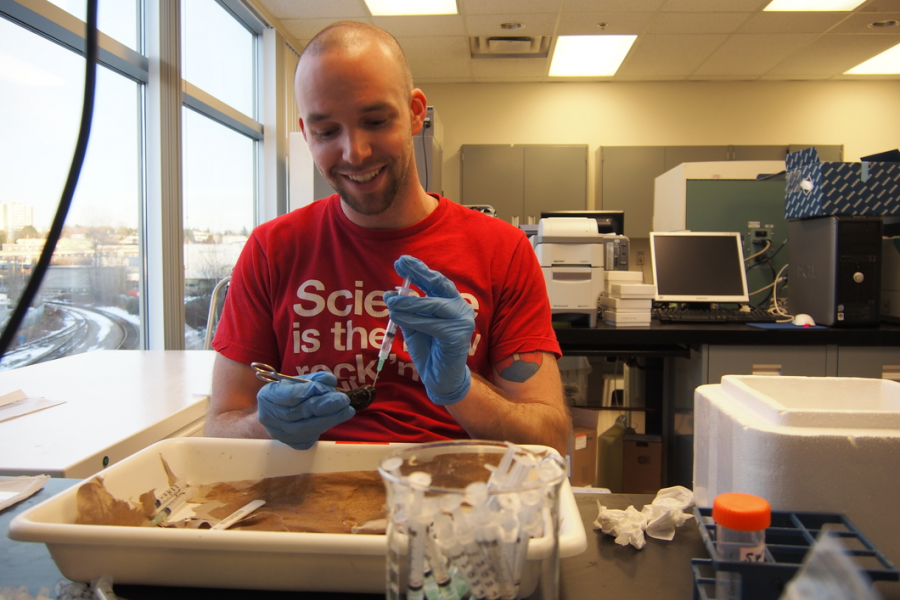
I am writing this after finishing the first of two co-op terms with the Vancouver Aquarium’s Ocean Pollution Research Program as a research assistant working on microplastics research. Microplastics are pieces of plastic less than 5 millimeters across that, somehow or other, have made their way into the ocean. There are two types: primary microplastics, which include microbeads, and secondary microplastics, which are formed by larger debris breaking down into smaller pieces. I never thought I’d end up working on this problem, because my career trajectory up to this point had not exactly been leading directly to ocean pollution.
This experience taught me that the best opportunities come in unexpected places, and you should never count yourself out of a job that you want simply because you studied something slightly different in university. After a frustrating, few years looking for a place to start my career, SFU's Career Services helped teach me one very memorable lesson: when job hunting it is crucial to emphasize your transferrable skills. That is, the useful traits and skills you may not realize you have acquired throughout your life.
I changed undergraduate majors several times before I settled on Archaeology and Environmental Studies, moving from the US to Canada to study at SFU’s School of Resource & Environmental Management. I had a wide variety of academic experience, but never landed that ‘dream job’, entry-level position in a field relevant to my degree -- an especially common problem for recent graduates in the States. It felt like a trap: you need experience to get a job and a job to get experience. My plan for escaping that trap was to enroll in a science and environment co-op. I attended the APEX professional development course through the Dean of Graduate Studies and their curriculum helped me identify the “keys” to escape my “prison": writing a resume and a cover letter that emphasized my transferrable skills.
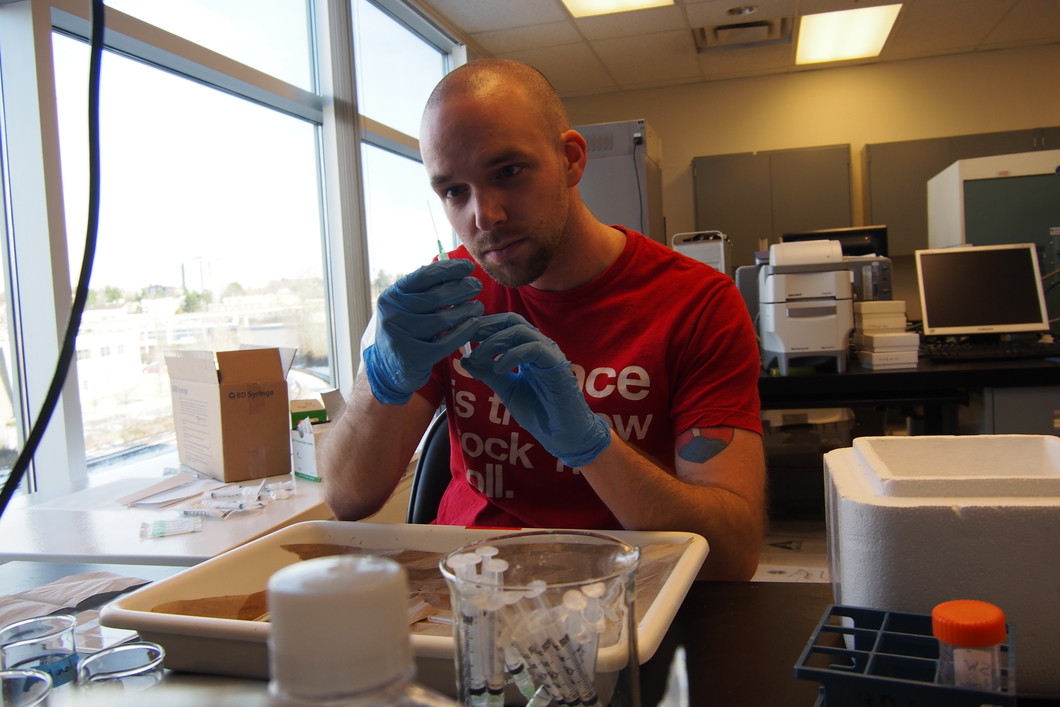
Resumes and cover letters were a mental block that I was embarrassingly bad at overcoming, but seeking out training and advice to emphasize my transferrable skills turned my lousy resume into a successful one. Here are specific examples from my experience that might help you with similar struggles. When drafting a resume, it’s not “archaeology field experience,” it’s adaptability, quick learning, and tolerance for occasional physical discomforts while maintaining mental focus, “archaeology field experience” sounds useless in a microplastics lab. However, the traits you acquired through that field experience can be valuable in any situation. It’s not “lab experience” that I gained from my thesis work, it was “attention to detail” (how often does that exact phrase appear on a job announcement?). As well as the ability to manage numerical data while performing quick accurate mathematical calculations; maintain a clean and organized working environment; and even maintain confidentiality with sensitive data. Those skills are useful in any job, from research to journalism to finance. In my case, I am mentally prepared for the occasional long afternoon of untangling millimeter-sized polyester threads under a microscope and photographing and measuring each one.
Along the way, I have picked the brains of all of the experts I’ve worked with and have become a much more versatile thinker for it. Through my graduate school work I’ve gathered plenty of writing experience, but this sounds much more relevant when I get specific and state my ability to write clear and concise briefing notes and reports. This experience lent me a great deal of confidence while writing the standardized protocols for each step of microplastics analysis, from isolating plastic from water samples to preparing microscopic fibers for spectrometry. And, while I’m hardly a computer scientist, my self-taught working knowledge of ArcGIS and R statistical programs demonstrates an ability to learn any software that may be required for an entry level position.
The moral of the story is not to sell yourself short. Focus on what you have, not what you lack. Think of your cover letter and resume as “propaganda” that makes you look as good as possible -- while always being fully honest. If you lie, they will find out eventually and you’ll get fired. But if you find you’re lacking in any specific area, you want to shift the topic of conversation to something that helps advance you toward your goal -- employment. That means telling them what you do have rather than apologizing for what you don’t. "But, Stephen,” -- you’re probably thinking now -- “you only got one co-op job and now you sound like an expert in this!” Well no, these are the exact same tips I heard at APEX and from my co-op coordinator. I am repeating them for one very simple reason -- they worked!
In Part 2, The Lowdown on Microplastics, I will cover how I adapted to a job where I felt way outside my comfort zone. In this situation, I was able to again draw on transferable skills and emphasize my adaptability to contribute to the workplace.
Beyond the Blog
-
To learn bout more opportunities similar to Stephen's, visit the School of Resource and Environmental Management's page.










